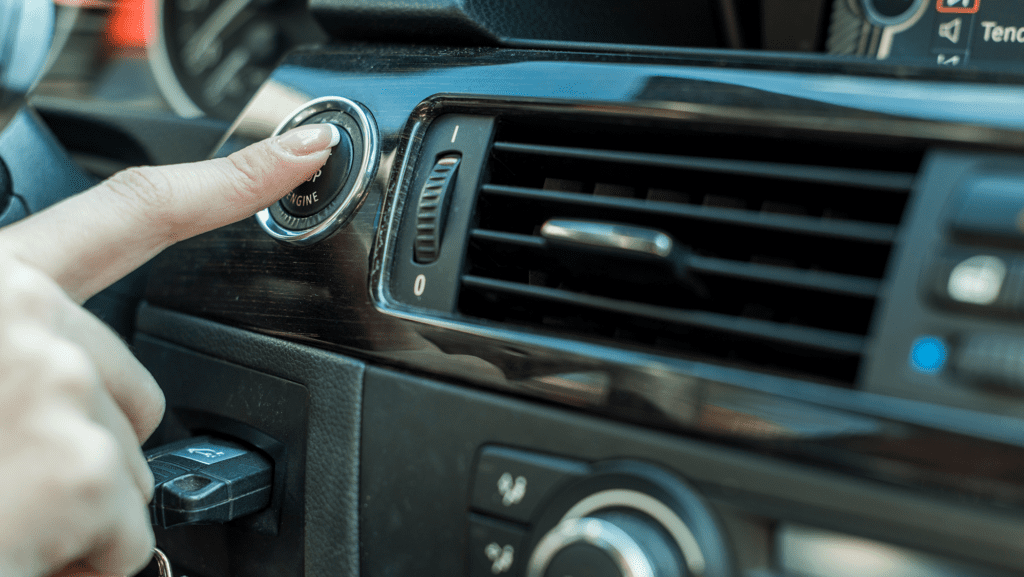A properly working car air conditioning system is essential for comfort, focus, and safety—especially during hot and humid driving conditions. When your car A/C fails, interior temperatures rise quickly, leading to discomfort, driver distraction, and potential health risks such as heat exhaustion or poor air quality.
Common issues like weak airflow, warm air, strange odors, or unusual noises should never be ignored. This guide to car air conditioning repair breaks down the most common A/C problems, practical troubleshooting tips, and when to seek professional service.
Use these tips and tricks to restore cooling performance, improve cabin comfort, and stay safe on the road.
Understanding Car Air Conditioning Systems
The car air conditioning system is an intricate network of components working in unison to provide a comfortable environment inside your vehicle. At its core, the system functions by manipulating refrigerant to absorb and release heat, hence cooling the air that circulates within the cabin. The principal components include the compressor, condenser, evaporator, expansion valve, and refrigerant, each playing a crucial role in the cooling process.
The compressor, often referred to as the heart of the system, is responsible for pressurizing the refrigerant and circulating it through the system. It draws in low-pressure refrigerant gas, compresses it into a high-pressure state, and passes it on to the condenser. The condenser, typically located in front of the radiator, dissipates the heat from the refrigerant, transforming it from a gas to a liquid.
Following this, the refrigerant flows through the expansion valve, where it experiences a drop in pressure and temperature before entering the evaporator. The evaporator, housed inside the vehicle’s dashboard, absorbs heat from the cabin and allows the refrigerant to evaporate back into a gas state. This process extracts heat from the air, cooling it before it is blown into the car by the blower fan.
Common Air Conditioning Issues in Vehicles
Car air conditioning systems, despite their complexity, are prone to several common issues that can hinder their performance. One frequent problem is refrigerant leaks, which can occur due to wear and tear in the hoses, seals, or connections. When the refrigerant level drops, the system’s efficiency diminishes, leading to insufficient cooling.
Another prevalent issue is a faulty compressor. Since the compressor is the powerhouse of the A/C system, any malfunction can severely impact its operation. Common symptoms of a failing compressor include strange noises, failure to engage, or even seizing up entirely. Such issues often necessitate replacement to restore proper function.
Electrical problems are also a significant cause of A/C failures. The system relies on various electrical components such as relays, switches, and fuses to operate correctly. Faulty wiring or blown fuses can disrupt the flow of electricity, preventing the system from functioning. Regular inspection of the electrical components can help identify and rectify these problems before they escalate.
Signs Your Car's A/C Needs Repair
Recognizing the signs that your car’s air conditioning system needs repair can save you from discomfort and costly fixes. One of the most apparent indicators is a lack of cold air. If the air blowing from the vents is not as cool as it used to be, it suggests an issue that needs attention, possibly due to low refrigerant levels or a failing compressor.
Another sign is unusual noises emanating from the A/C system. Grinding, squealing, or clunking sounds when the A/C is running can indicate problems such as a failing compressor, loose parts, or debris trapped in the system. Ignoring these noises can lead to more severe damage and higher repair costs.
Foul odors coming from the vents when the A/C is on can also signal a problem. These odors are often caused by mold or mildew buildup within the system, which can occur due to moisture accumulation. Not only does this affect the A/C’s performance, but it can also pose health risks, making it essential to address promptly.
Basic Tools Needed for A/C Repair
Embarking on car air conditioning repair requires the right set of tools to ensure safety and efficiency. A manifold gauge set is indispensable for diagnosing and recharging the A/C system. This tool measures the pressure of the refrigerant, helping identify leaks and ensuring the system is correctly charged.
A refrigerant leak detector is another crucial tool, especially for pinpointing leaks that are not visible to the naked eye. These detectors can sense even minor leaks, allowing for precise repairs and preventing further damage. Additionally, UV dye kits can also be used in conjunction with a UV light to locate leaks by highlighting the areas where the dye escapes.
Other essential tools include a vacuum pump to remove air and moisture from the system before recharging, a set of wrenches and screwdrivers for loosening and tightening components, and safety equipment such as gloves and safety glasses. Having these tools on hand can make the repair process smoother and more effective.
Step-by-Step Guide to Diagnosing A/C Problems
Start With a Visual Inspection
Pop the hood and examine the AC system components for obvious issues. Look for cracked or worn hoses, loose fittings, and oil stains around connections—oil residue often signals a refrigerant leak.Check System Pressure With a Manifold Gauge Set
Connect the gauges to the low- and high-pressure service ports, then compare your readings to the manufacturer’s specifications. Unusual pressure levels can point to low refrigerant, a failing compressor, or a restriction such as a clogged expansion valve.Use a Refrigerant Leak Detector
If nothing stands out visually, scan the system with a leak detector. Move slowly around hoses, joints, and connection points. If a leak is detected, repair it before recharging or further testing.Inspect Electrical Components
Review the fuses, relays, and wiring tied to the A/C system. A blown fuse, weak relay, or damaged wire can stop the A/C from working even when the mechanical components are fine.
DIY Air Conditioning Repair Tips
While some air conditioning repairs are best left to professionals, there are several DIY tips that can help you address minor issues and maintain your system.
One simple yet effective tip is to regularly check and replace the cabin air filter. A clogged or dirty filter can restrict airflow, reducing the system’s efficiency and causing the evaporator to freeze.
Another useful tip is to clean the condenser regularly. The condenser is exposed to the elements and can accumulate dirt, debris, and bugs, which can obstruct airflow and reduce cooling efficiency.
Using a garden hose to gently wash the condenser can help maintain optimal performance. Be sure to avoid using high-pressure water, as it can damage the fins.
If you suspect a refrigerant leak, adding a UV dye to the system can help locate the source. After adding the dye, use a UV light to inspect the system for any glowing areas, which indicate where the dye (and thus the refrigerant) is escaping.
This method allows for precise identification of leaks, making it easier to address them effectively.
When to Seek Professional Help
While DIY repairs can be effective for minor issues, certain situations warrant professional intervention.
If you encounter a persistent refrigerant leak that you cannot locate or fix, it’s best to seek help from a certified technician. They have the expertise and equipment to accurately diagnose and repair leaks, ensuring the system is properly sealed and recharged.
Complex issues such as a failing compressor or a malfunctioning expansion valve also require professional attention. These components are critical to the system’s operation, and improper handling can lead to further damage.
A HEART technician can assess these parts and perform necessary repairs or replacements with precision.
Additionally, if you are not comfortable working with the electrical components of the A/C system, it’s advisable to leave it to the experts.
Electrical problems can be intricate and risky to handle without proper knowledge. We can safely diagnose and repair electrical issues, ensuring the system operates smoothly and safely.
Preventive Maintenance for Car AC Systems
Preventive maintenance is key to keeping your car’s air conditioning system in top shape. Regularly checking and maintaining the system can prevent major issues and prolong its lifespan.
Start by scheduling annual AC system inspections with a qualified technician. These inspections can identify potential problems early and address them before they escalate.
Another important aspect of preventive maintenance is ensuring the refrigerant levels are adequate. Low refrigerant levels can strain the compressor and reduce cooling efficiency. Have the refrigerant levels checked during routine maintenance and top it up if necessary. This simple step can significantly improve the system’s performance.
Additionally, keeping the condenser clean and free from obstructions is crucial. Regularly inspect the condenser for dirt, debris, and damage. Cleaning it with a gentle stream of water can help maintain optimal airflow and cooling efficiency.
Also, ensure the cabin air filter is replaced as per the manufacturer’s recommendations to prevent airflow restrictions and maintain air quality inside the vehicle.
Cost of Car Air Conditioning Repair
The cost of car air conditioning repair can vary widely depending on the nature and extent of the problem. Minor repairs, such as fixing a refrigerant leak or replacing a cabin air filter, are relatively inexpensive, typically ranging from $50 to $200. These repairs are often quick and straightforward, making them more affordable.
More significant issues, such as a faulty compressor or a malfunctioning evaporator, can be considerably more expensive to repair. Replacing a compressor can cost between $500 and $1,000, including parts and labor. Similarly, evaporator replacement can range from $600 to $1,200. These repairs require more time and expertise, contributing to the higher cost.
It’s important to consider that regular preventive maintenance can help avoid costly repairs in the long run. Investing in routine inspections and maintenance can identify potential issues early, preventing them from developing into major problems. While the initial cost of maintenance may seem high, it can save you from expensive repairs and extend the lifespan of your AC system.
Conclusion: Keeping Your Car's AC in Top Shape
Maintaining your car’s air conditioning system is essential for ensuring a comfortable driving experience, especially during hot weather. Understanding the components and common issues of the AC system can help you identify and address problems early. Regular maintenance, including checking refrigerant levels, cleaning the condenser, and replacing the cabin air filter, can significantly improve the system’s performance and longevity.
While DIY repairs can be effective for minor issues, it’s important to recognize when professional help is needed. Complex problems such as a failing compressor or electrical issues require the expertise of a certified technician. Investing in professional repairs and routine maintenance can prevent costly repairs and ensure the system operates efficiently.
In conclusion, keeping your car’s air conditioning system in top shape involves a combination of regular maintenance, timely repairs, and professional inspections. By following the tips and tricks outlined in this guide, you can enjoy a cool and comfortable ride, no matter the weather.
Stay proactive in caring for your AC system, and it will continue to keep you cool for years to come.





